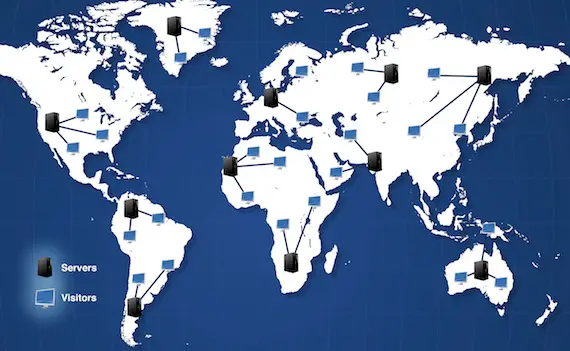The Impact of CDNs on Global Internet Speeds: An Analysis

Introduction

Content Delivery Networks (CDNs) have emerged as a crucial component of the modern互联网, significantly impacting global internet speeds and the user experience. This paper analyzes the role of CDNs in enhancing internet performance and explores their impact on various aspects of online connectivity.

What are CDNs?
CDNs are distributed networks of servers located geographically around the world. They act as intermediaries between content providers and end-users, delivering static and dynamic content such as images, videos, and web pages closer to the user’s location.
How CDNs Improve Internet Speeds
CDNs optimize internet speeds in several ways:
- Reduced Latency: By placing content closer to users, CDNs minimize the distance that data must travel. This reduces latency, or the time it takes for content to reach its destination.
- Increased Parallelism: CDNs use multiple servers to deliver content simultaneously, allowing users to receive data from the fastest available path.
- Content Caching: CDNs store frequently requested content at the edge servers, reducing the load on origin servers and delivering content more quickly to users.
Impact on Global Internet Speeds
CDNs have had a profound impact on global internet speeds:
- Increased Average Download Speeds: CDN usage has contributed to a noticeable increase in average download speeds worldwide. According to studies, CDNs can reduce download times by up to 50%.
- Reduced Content Loading Time: CDNs accelerate the loading of web pages, images, and videos, improving the user experience and reducing frustration.
- Improved Video Streaming: CDNs enable smoother and higher-quality video streaming by minimizing buffering and latency issues.
Other Benefits of CDNs
Beyond speed improvements, CDNs provide additional benefits:
- Enhanced Reliability: CDNs provide redundancy and fault tolerance by distributing content across multiple servers, reducing the risk of outages.
- Reduced Server Load: CDNs offload traffic from origin servers, freeing up resources and improving the performance of websites and applications.
- Improved Security: CDNs can incorporate security measures such as encryption and DDoS mitigation, protecting content from unauthorized access and attacks.
Conclusion
Content Delivery Networks (CDNs) play a vital role in enhancing global internet speeds and improving the user experience. By reducing latency, increasing parallelism, and caching content, CDNs accelerate content delivery and make the internet faster and more reliable. Their impact on various aspects of online connectivity has transformed the way users access and consume content worldwide. As the internet continues to evolve, CDNs will remain a key component in ensuring optimal internet performance for businesses and individuals alike.

